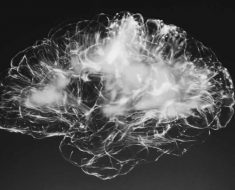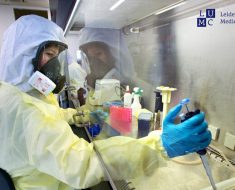Thus, a low Vitamin-D levels in the hair, recognize
A lack of Vitamin D supply is widely used in Germany. According to the Robert Koch-Institute more than one Person in such a small proportion in the body has, the risk increases for diseases such as osteomalacia (bone softening) and osteoporosis. Around 40 per cent of the population to a suboptimal supply. A Vitamin D deficiency, however, is time-consuming and requires withdrawals several Blood and laboratory tests. A research team has now found a way to determine the Vitamin D content in the hair.
The current methods for determining the Vitamin D content in the body are not optimal. The blood test can only provide a snapshot of the vitamin level in the course of the year, times of strong fluctuations. Researchers from the Trinity College Dublin and St. James’s Hospital have developed the world’s first method that can be used to determine the Vitamin D concentration in the body on the basis of the hair. Thus, the mirror can be traced several months back. The results of the study were recently presented in the journal “nutrients”.

Vitamin D blood analysis is time-consuming and cumbersome
As the research team reported, are estimated to have affected more than 1 billion people worldwide have a Vitamin D deficiency. In addition to an increased disease risk for bone diseases such as rickets, low Vitamin D concentrations as a risk factor for Depression, heart diseases, inflammation, Diabetes, and cancer suspect. The most common way a defect, is to time a blood test. This, however, requires numerous measurements and laboratory tests until a reliable statement can be made.
Revolution in the diagnosis
This whole effort can be replaced by the analysis of a single hair, the Irish research team in the current study. Since hair can about be to grow an inch per month, so a time course of the Vitamin D content in the body is determined, depending on the length of the hair. “Vitamin D is deposited continuously with increasing growth in the hair”, says Professor Dr. Lina zgaga had been involved, the main author of the study. If the hair is long enough, could be traced the course of even a few years back.
Hand firmer evidence of sequelae
In addition to the improved diagnostic possibilities, the researchers will see even more application possibilities. So could be determined in further studies much better, if a Vitamin-D deficiency is in connection with other diseases. Furthermore, the method is also for the historical research makes sense, as hair is among the longest surviving biological materials after death. The Vitamin-D could be determined-Status of historical populations.
Further research on the suitability for the mass necessary
Before the Test can be to a wide audience of applied, further research is necessary. “There are still several factors need to be examined, which can affect the Vitamin D levels in the hair,” explains the Professor. This includes factors such as the hair color and hair thickness, but other situations, such as the use of care agents or dyes include, for example,. (vb)





